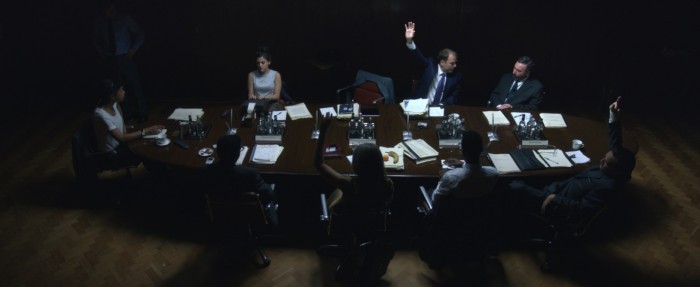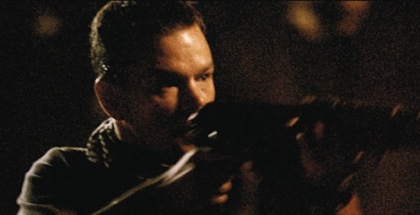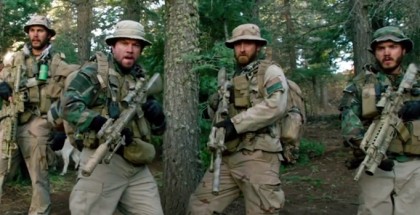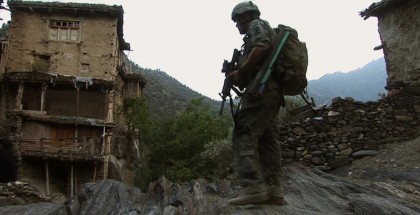VOD film review: War Book
Review Overview
Cast
8Script
8David Farnor | On 19, Aug 2015
Director: Tom Harper
Cast: Adeel Akhtar, Nicholas Burns, Sophie Okonedo
Certificate: 15
Watch War Book online in the UK: Vertigo On Demand / Apple TV (iTunes) / Prime Video (Buy/Rent) / Google Play
Ever since the 1960s, the UK government has regularly hosted a game of “what if…” to decide the best action to take in the event of nuclear war. It’s an essential exercise, an intriguing office routine and it makes for riveting viewing.
War Book, which first premiered at the London Film Festival in 2014, aired on BBC Four this month – in the wake of the 70th anniversary of Hiroshima – and is now on VOD, courtesy of BBC iPlayer. Tom Harper’s film follows a group of nine civil servants as they gather over three days to play out the hypothetical scenario.
They’re your usual workplace bunch, from the older, sleazy alpha male, Gary (Ben Chaplin), to the note-taking Kate (Phoebe Fox), who winds up his prey. But that familiar domestic drama raises the international stakes of their ethical dilemma: the suspense isn’t interrupted by the saucy, soapy interludes; the tension is heightened by the question of whether they can overcome their personal problems to reach any kind of political decision at all.
Jack Thorne’s script balances the meaningful statements with the kind of acerbic behind-the-scenes snipes we’ve become accustomed to from such satire as The Thick of It – “We all get fucked in the service of our country,” deadpans Sophie Okonedo’s Philippa, who attempts to hold the group together.
Director Tom Harper, meanwhile, doesn’t shy away from the theatre-like set-up, restricting all the action to secure and confined interiors: even when we escape from the room and to the outside world, we’re trapped in the back of a car. As the claustrophobic atmosphere begins to take its toll, our rag-tag bunch fall out over increasingly serious proposals, from closing borders to retaliation. Shaun Evans’ liberal Tom is agonisingly earnest over the whole idea, but how much is the opposition just goading him and how much is it doing what it believes is morally right?
“The truth is we should be frightened of everything,” says one. As the question of how easily this theoretical situation could become a practical reality looms, War Book’s impact lies not in the prospect of global conflict or the kind of people with their fingers on the nuclear button, but in the realisation that any outcome is the result of ordinary bureaucratic process. Reminiscent of Frank Pierson’s chilling 2001 film Conspiracy, War Book reminds us that even when the worst things are being considered, all meetings must finish. The papers are tidied away. The lights are switched on. Just another day in the office.





















